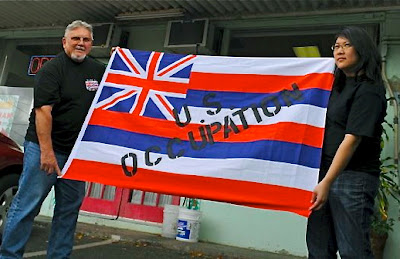
In the 1980s, Hawai`i gained the enviable reputation of providing medical insurance to the highest percentage of residents of any state.
A decade after the state ended dental cover, toothless smiles are commonplace among the poor. Tens of thousands of residents have no medical insurance at all.
Despite higher profits for many businesses, jobs are scarce and most of the available work pays minimum wage or close to it.
In some cases, the lives of the working poor are worse than the unemployed. Among other things, they don't qualify for state financial assistance or full food stamp benefits.
Today most of Hawai`i island, Molokai, Lana`i and Kaua`i are economic wastelands with little opportunity to make a decent living.
On Kaua`i workers often share apartments or small houses with several other workers because rents are too expensive for one or two individuals to afford.
On every island married couples with children often work two jobs each to make ends meet - if they are fortunate enough to find that many jobs, even at minimum wage.
Hawai`i imports two-thirds of its food from the mainland and locally-grown food is expensive due to high land prices.

